If I were to offer a capsule review of Guardians of the Galaxy, it would be this: It's the first movie that I have seen twice in a theater since Star Wars Episode III: Revenge of the Sith. That means something, folks. I don't get to the movies very often anymore, because it's become a significant enough expense that it has to be something I most definitely want to see. Yes, there have been movies I've wanted to see again, but until now, none of them actually managed to get me to again.
Guardians of the Galaxy did.
Like many a person who went to see this movie, I never really heard of the Guardians of the Galaxy until I learned that this movie was in production. I did read some of the comics on a catch-up basis, and I enjoyed them, although I admit that I was a bit confused as to how this property would translate to the screen, especially being a part of the Marvel Cinematic Universe.
OK, for those out there not up on this jargon at all, here's a brief explanation. Marvel Comics, like DC Comics before it, had a bunch of successful comics featuring popular superheroes. They quickly realized that they could make their entire line more successful if they had their superheroes team up with one another on occasion, which meant therefore that the Fantastic Four existed in the same "world" as Spider Man. Over time, the Marvel Universe got really big, with lots of heroes and hero-teams doing heroic stuff all over the place.
Interestingly, some of these titles had their own internal "mythologies" that were also part of the larger mythology, and there were differences in focus, too. Spider Man pretty much stuck to New York City most of the time, but then you had the X-Men occasionally going off to space, and the Fantastic Four facing giant cosmic threats, and so on. The Marvel Cinematic Universe is a filmed approach to this same notion, albeit with scaled down numbers of characters. Here, too, you have different things going on: Iron Man seems to exist in the techno-spy-thriller arena, whereas with Thor we have a hybrid of Norse myth and space opera. And with Guardians of the Galaxy, that's straight-up space opera.
So that's why I gravitated to Guardians of the Galaxy, obviously: because it's a space opera, straight-up. Aliens, spaceships, ray guns, lost artifacts on deserted planets, space prisons, a bad guy who apparently sits on a rock in space as he plans, a peaceful happy planet under threat of annihilation by a villainous alien who has found a cataclysmic weapon. To quote the movie's talking raccoon, "Oh, yeah."
And yes, this is a movie that sends you out into the night quoting a talking raccoon.
When I was reading comics, the X-Men titles were written by Chris Claremont, who was good at creating a big sense of scale with very high stakes in his stories. Guardians of the Galaxy, as a franchise and now as a movie, seems to me best described as a good Chris Claremont story...as directed by Chuck Jones. Guardians of the Galaxy is full of heart and good cheer, creating a cast of flawed characters who have their own reasons for feeling like outcasts, and who then have to come together in order to save everybody else. What this film does in terms of its characters is a pretty amazing achievement.
The tone is struck early on. Before we even get the flipping-comic-pages Marvel logo, there's a scene in which a ten-year-old boy has to say goodbye to his dying mother minutes before a spaceship comes to whisk him away. After that we cut to this same kid, now an adult, landing on a mysterious, damp, and rocky planet. He's clearly looking for something, but before he does, he has one bit of business to attend to. He puts on a pair of earphones from 1985, clips an old Walkman to his belt, presses "play", and as the strains of "Come and Get Your Love" by Redbone take over, he enters the cave in a sequence that feels partially reminiscent of the opening sequence of Raiders of the Lost Ark, only our hero, Peter Quill (who reasons we won't find out until the very end of the movie also calls himself "Starlord") seeks out the artifact he's been hired to find. Only he does it in dance-step to the song, kicking rodents out of the way to the beat and then grabbing one to use as a prop microphone. That's what kind of movie this is: a space opera about a thieving outlaw whose emotional center is the mixtape his mother gave him years before.
Guardians of the Galaxy does very little exposition that isn't part of something else happening, which is part of how it seems shorter than it is. The film has very few infodumps, and really, it only tells you exactly what you need to know to understand what's going on. Other than that, it's illuminating to look back at the end and realize just how much the filmmakers have held back. Is Groot's species ever named? His planet of origin? Rocket cries that he didn't ask to "be made", but who made him? We're never told. Do we need to be? Probably not, because who hasn't known what it's like to carry around a burden that's all your own, that nobody else understands?
A lesser movie might have given long flashbacks to some, or all, of the characters. We might have seen Peter Quill growing up on Yondu's ship. We might have seen something of a raccoon being made sentient and, therefore, a freak. We might have seen where Groot comes from, and we might have seen Drax's family being killed. We don't see any of those things, because the film's script keeps its eyes on the prize the whole way. That's not to say the story isn't complex, because it is, but the story is very tightly constructed. Each thing leads logically to the next thing that happens, and each character's motivations are mostly clear. There is some muddiness, mainly in the villains' backgrounds and motivations. No one, in any of the Marvelverse films, has yet asked the million dollar question, "What does Thanos want with all the Infinity Stones?" I imagine we'll get there eventually.
What this film has to do, along with all the other Marvelverse movies, is set itself into that larger universe where this smaller story is a part of something much bigger that's going on. The Marvelverse films all seem to be slowly laying the foundation for an eventual cataclysmic encounter with Thanos, and I wonder how that's going to go – is there a Really Big Movie slated for, say, 2019, in which everybody shows up? I suppose we'll see. For now, we've got this one. One thing that was always so great about Marvel comics is that they always acknowledged, at their best, that they took place in a larger world, with which the main characters or heroes had to interact. That was always what informed their desire to do good, motivating all the world-saving they did. And there is a larger world in this movie, with real lives that intersect with those of our main heroes.
What I ultimately liked most about Guardians is that it tells a story depicting a cheerful world. The main planetary setting is bright and sunny, and even some of the other "darker" locations aren't entirely dystopic horror shows. This movie, along with the two recent Star Trek films (even with their faults) make me wonder, and hope, if a shift toward a brighter tone of storytelling may be in the offing.
Guardians of the Galaxy is ultimately, for me, a movie that gets everything just about completely right. It's hard for me to find a real flaw in it, at least, anything that really stands out. I love how the team comes together – the criminals that get arrested together end up staying together out of sheer desperation, only admitting toward the end that there's any kind of factor involving liking one another. Peter Quill becomes a leader without ever having any Big Moment In Which He Confronts His Own Darker Nature, which I appreciate. That's what this movie does so well: it's a nearly perfect example of what might be the most often-cited bit of advice for writers.
Show, don't tell.
Guardians of the Galaxy shows things. It doesn't slam on the brakes to tell you things.
A few random thoughts:
:: People who whine about "soulless CGI effects" whilst pining for the good old days of rubber costumes and model spaceships really need to shut up after this film, which proves, I think, that effects themselves either have "soul" or don't on the basis of the screenplay, and not the effects. The most emotional moments in this movie involve a purely digital character whose dialogue consists of just five words. From now on, if you want to talk about soulless CGI, there's the door. Talk about soulless writing.
:: Space opera movies should be a visual treat, and this one is. It has a look all its own, with swirling clouds of space gas and ships with neat geometry.
:: There are a couple of scenes where Rocket responds to Groot as if he's said something other than "I am Groot", which makes me wonder – is this like a Han-and-Chewie thing, where Han can totally understand Chewie's grunts? Is Groot actually saying things, or is Rocket just plugging in meaning where he sees fit? Interesting.
:: Tyler Bates's score didn't impress me the first time I heard it (before I saw the film), but when heard in the proper film order, with the classic rock songs mixed in, it becomes a very entertaining listen indeed. This isn't great film music by any means, but it's fun to hear. Those songs are perfectly chosen, by the way; each one hits the mood dead-on when it comes up in the movie. If you want to program a playlist for the score and songs in proper order, someone on the FSM boards figured this out. I knew there was a reason I still visit that site a couple times a week!
:: Great details abound in this movie. When the Guardians do their stereotypical "slow heroic walk down the corridor", Gamora is yawning, Rocket is adjusting his nethers. Also, there are so many tiny character moments that add up to great stuff. Frequently these involve Rocket, such as when he throws a damp blanket on Drax's self-pity, a favor which Drax returns at the end of the film when Rocket is suffering his own brand of heartbreak. And notice Rocket's response: it's like he's never had his fur stroked at all, which he probably hasn't. When Gamora starts to dance, it's not a full-fledged dance, just a slight rhythmic swaying. And when Peter gives Yondu the orb, it's interesting to me that Yondu waited as long as he did to see what was inside. Judging by his smile, he seems to have known – and not only that, he seems to be just a little bit pleased. Yondu is presented as some kind of father figure to Quill, and there’s something in his smile that says, “Yeah, that little shit turned out all right.”
:: Yondu’s pretty interesting on his own, and that’s something I always liked about the Marvel comics: the way the heroes could fight the villains one issue and have to team up with them the next. The line between hero and villain is more interesting when it’s moving around, isn’t it?
:: So where do the Guardians of the Galaxy go from here? In all honesty, I hope they stay where they are: out on the far-flung frontiers of the Marvel Universe, only having the briefest and most tangential contact with the rest of it, if any at all. It’s a big Galaxy, after all; somebody’s got to guard it!

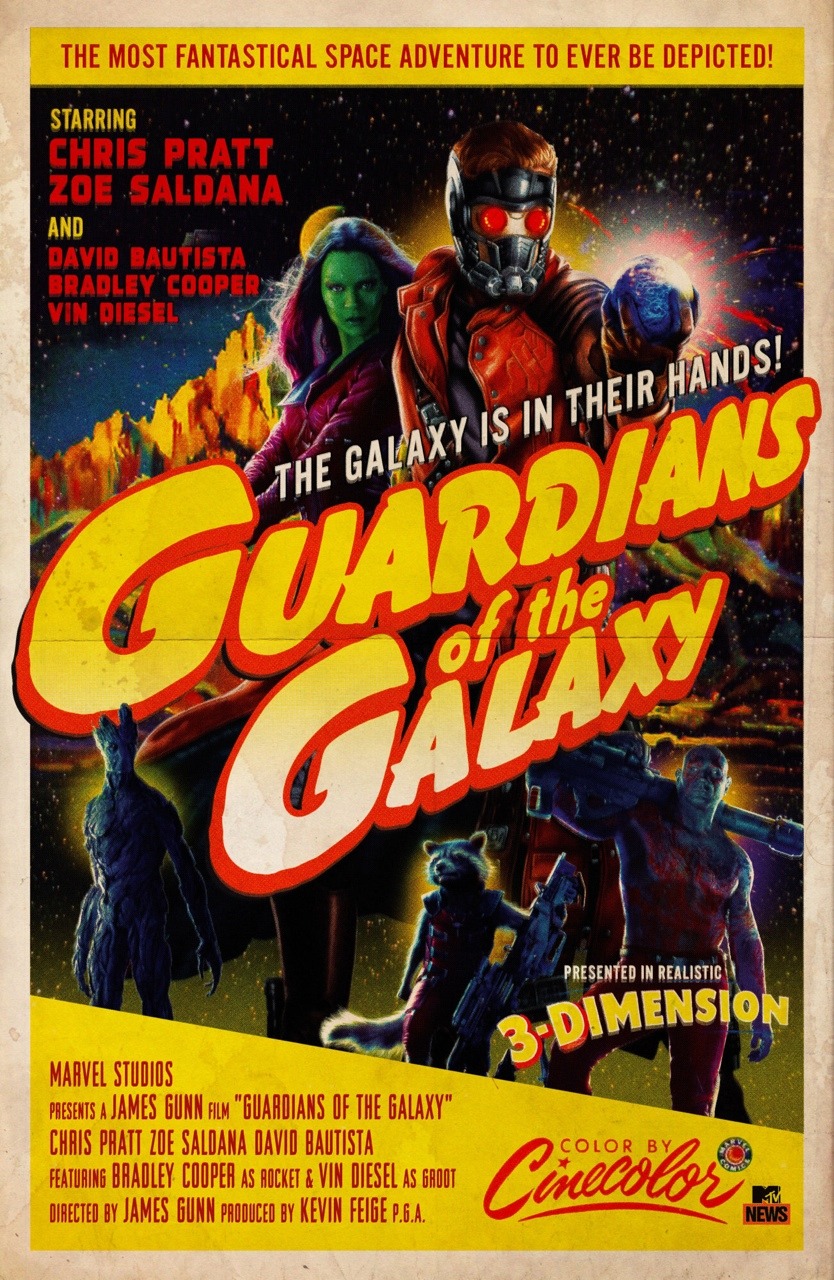
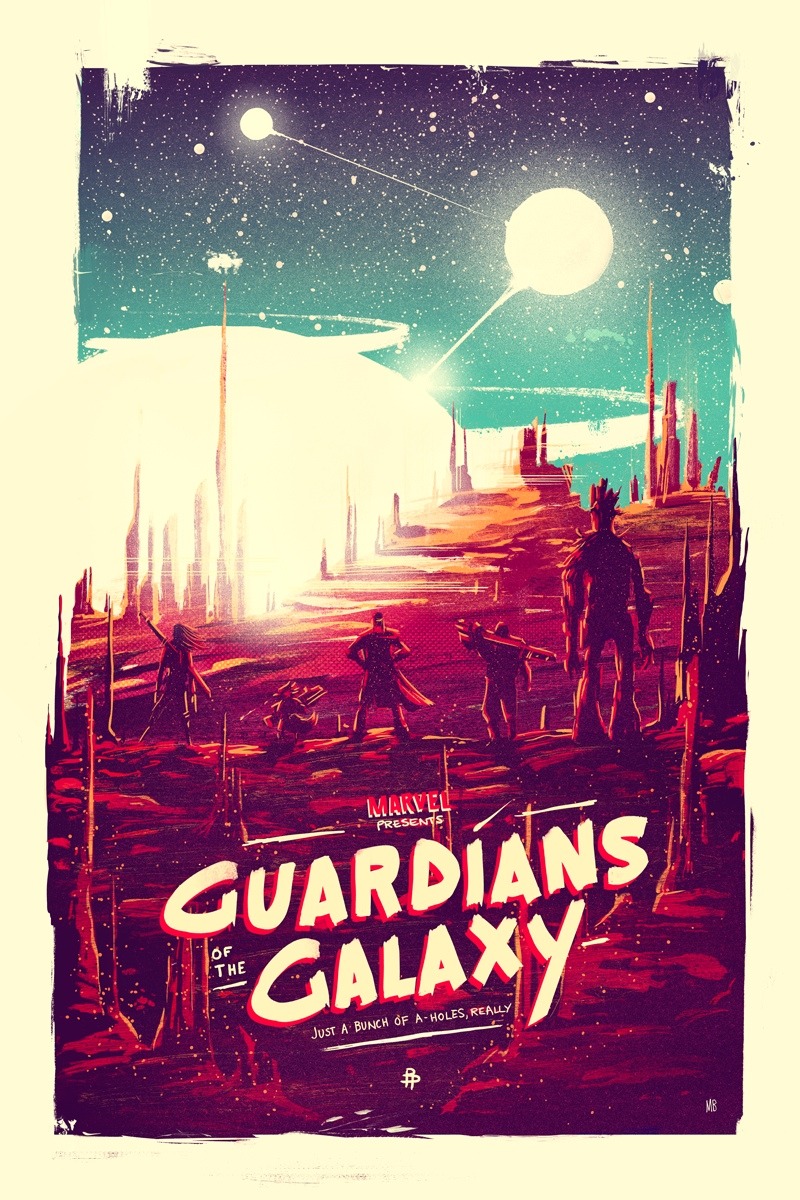
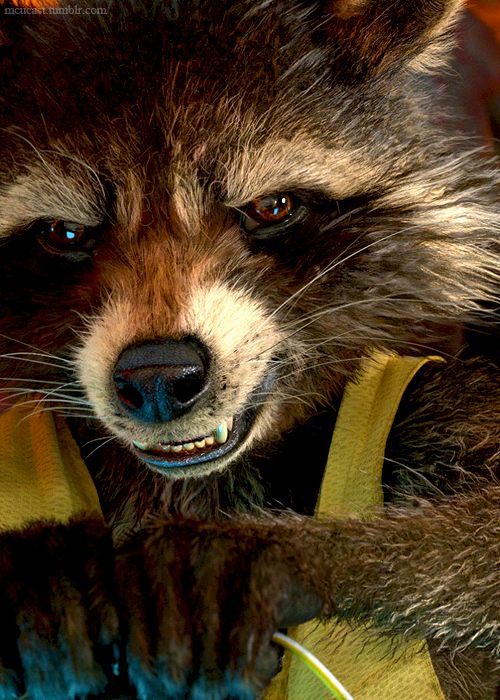
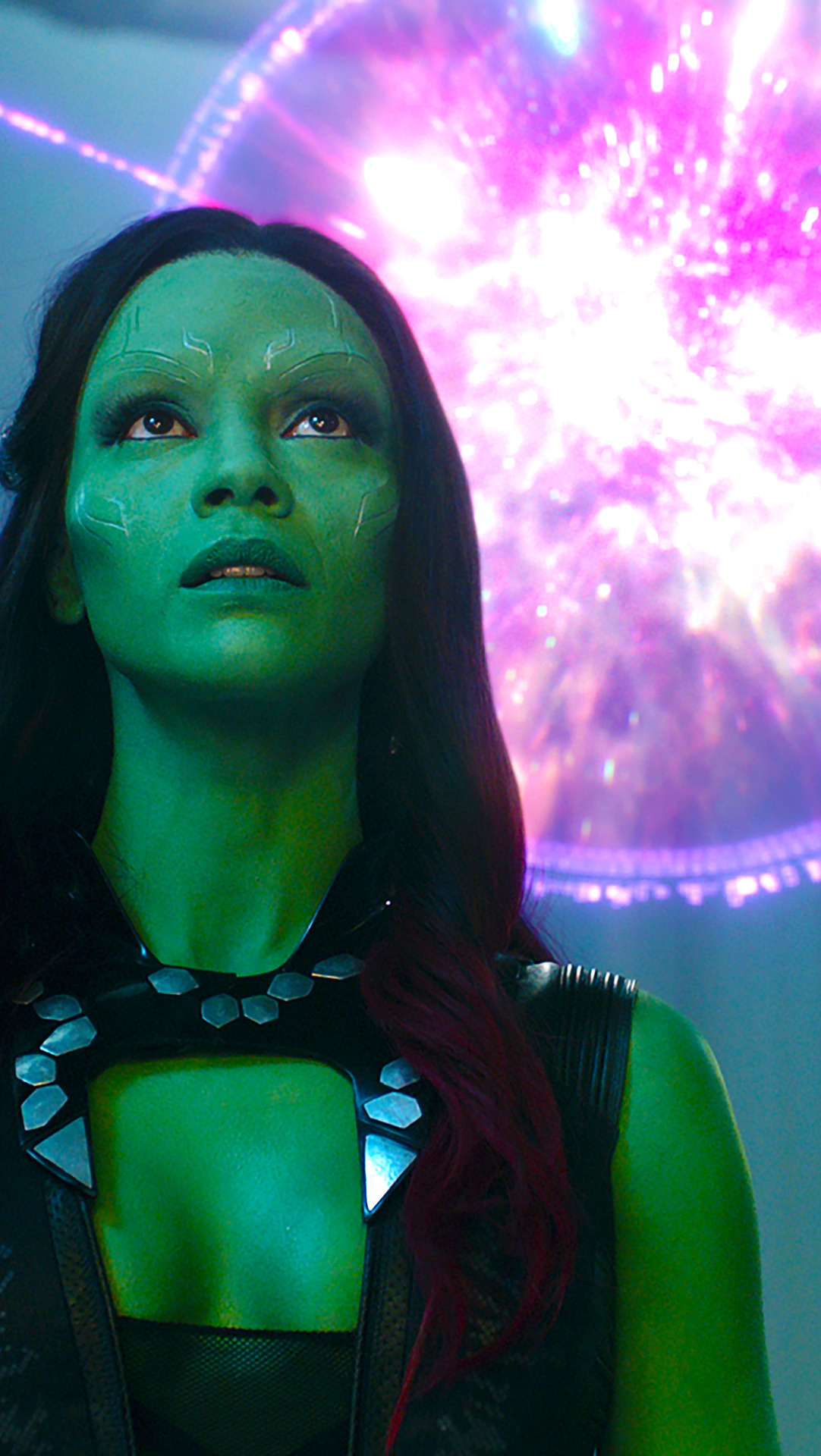
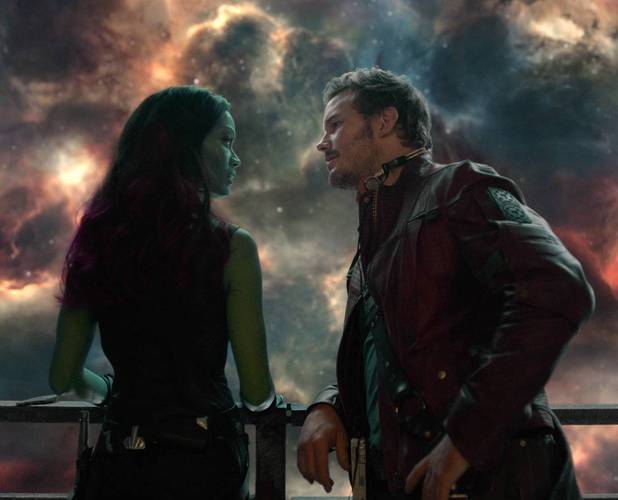
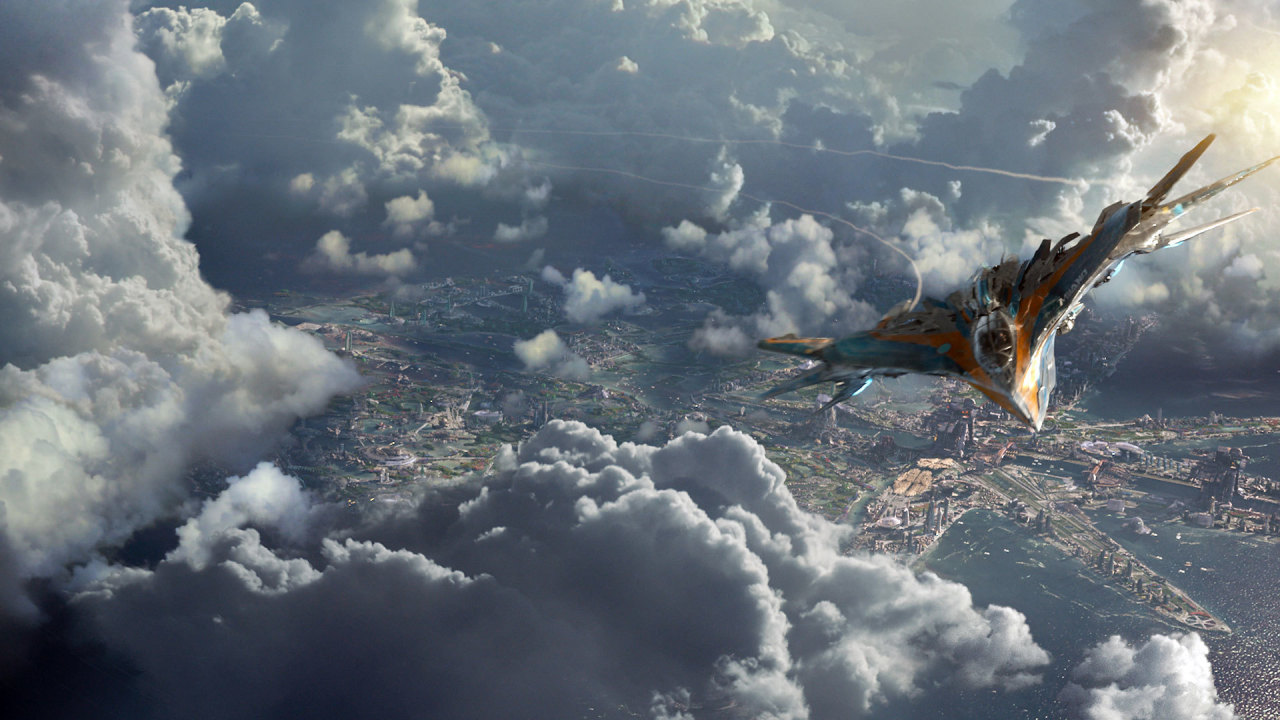


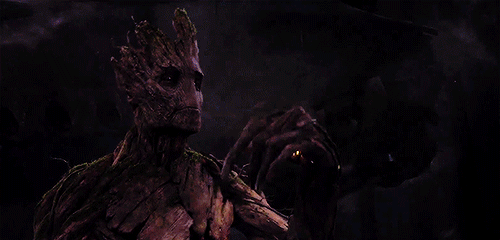
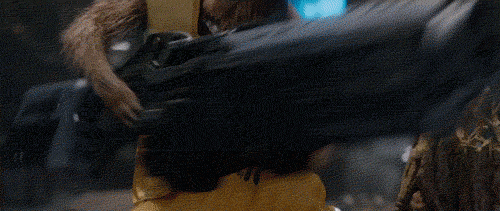
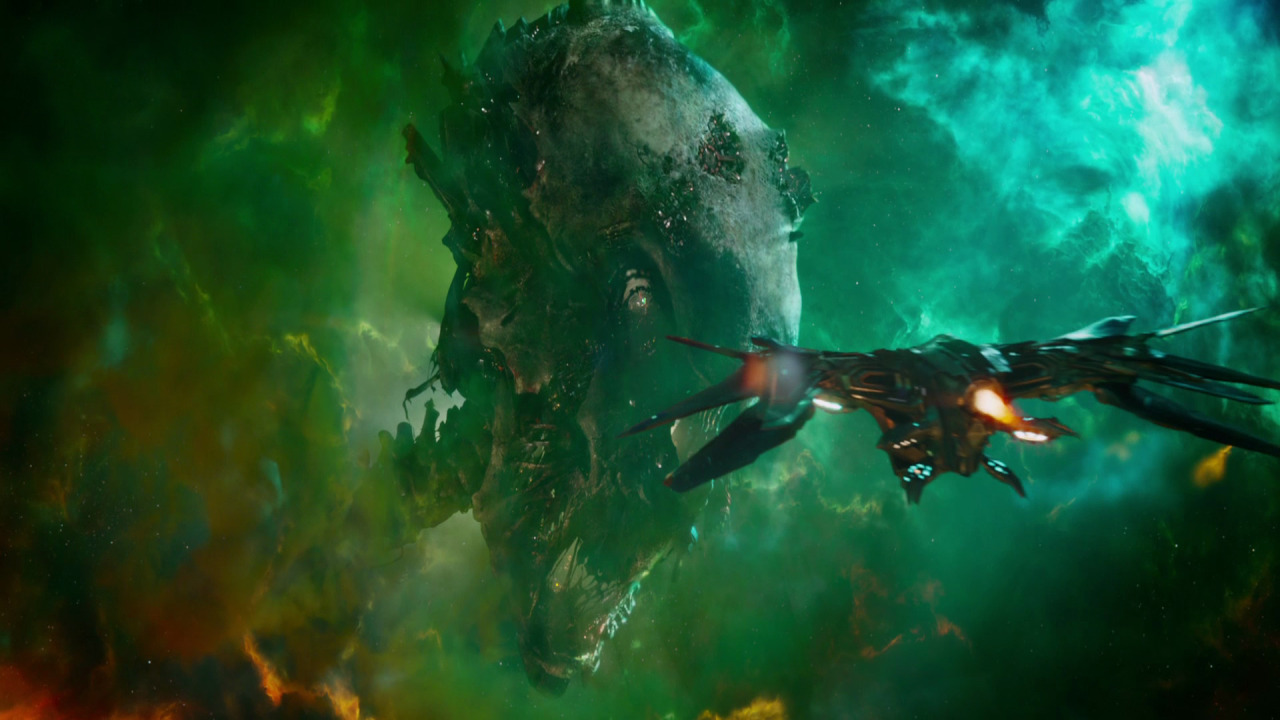
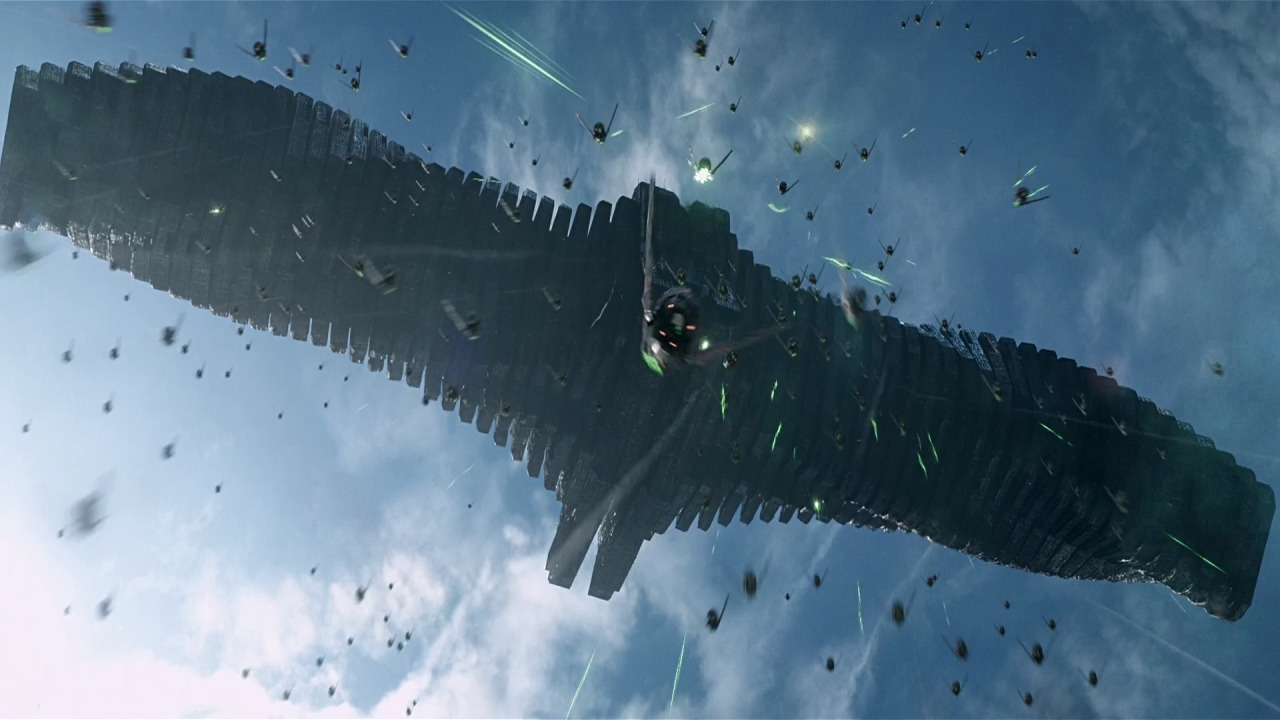
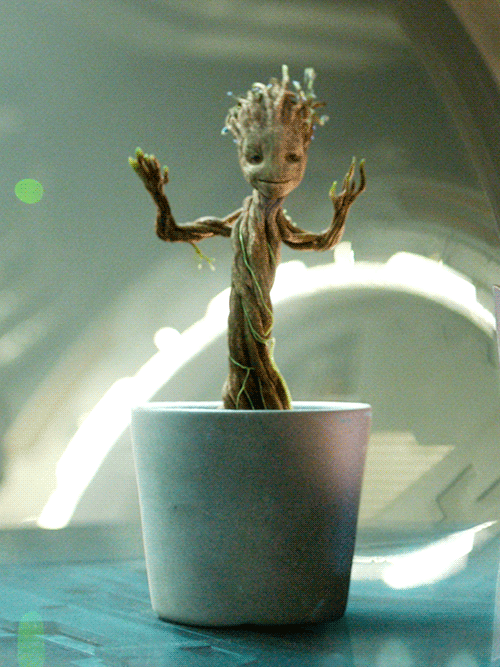
2 comments:
Glad you liked it! My own love of this flick -- and especially of Rocket and Groot -- is on record.
One quick comment regarding whether or not Rocket understands Groot: my comic-aficionado friends inform me that yes, Groot is speaking some kind of language that Rocket can understand. It is exactly the Han/Chewie thing, which is what I thought from the beginning. It never occurred to me that Rocket might just be filling in the blanks. There's actually a pretty funny comic panel floating around where Groot is talking to a lovely lady - Storm from the X-Men, I think, although I can't remember for sure -- where in his thought-bubble he's expressing these beautiful, poetic sentiments about how wonderful she is, but of course all she's "hearing" in his dialog bubble is "I am Groot." :D
Ah, my mistake.. the cover features Jean Grey... who may actually be understanding Groot, since she's a telepath. But the image is funny:
http://2.bp.blogspot.com/-zNhFvBMcgDU/Utm2s3zD-ZI/AAAAAAAADBY/cKRlyxYV5fk/s1600/1111groot.jpg
Post a Comment